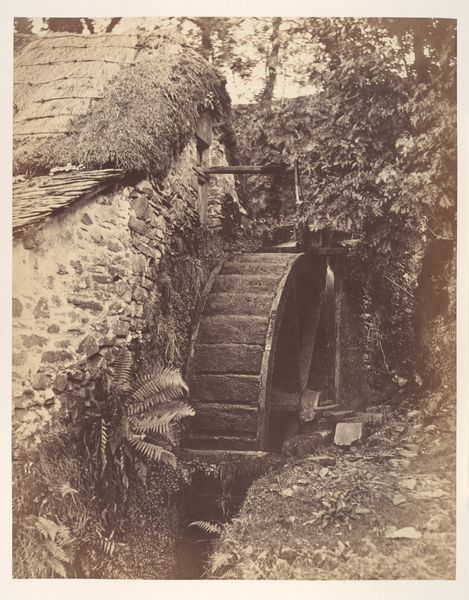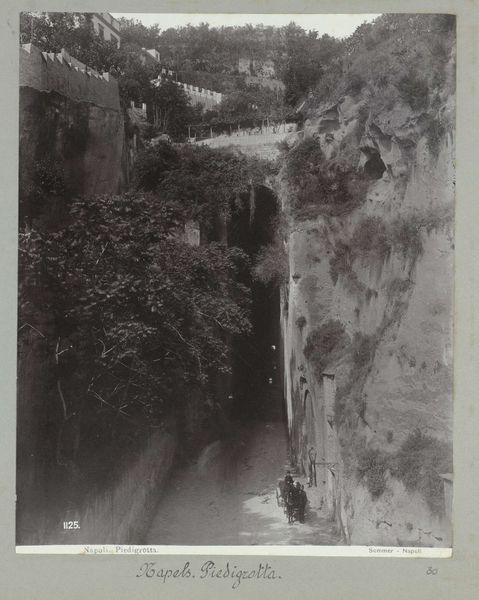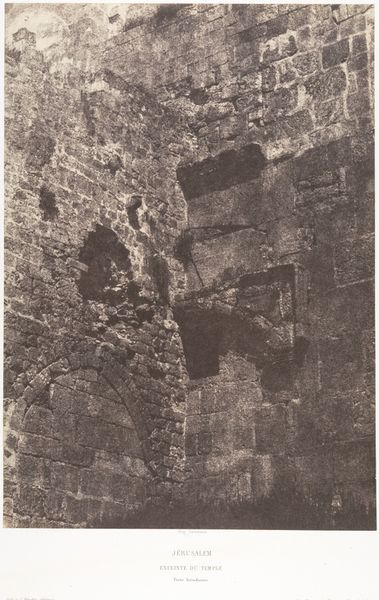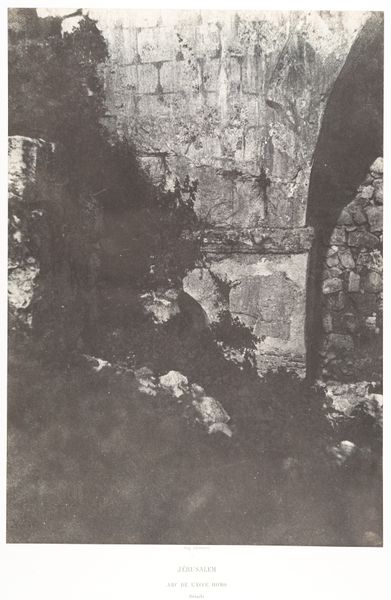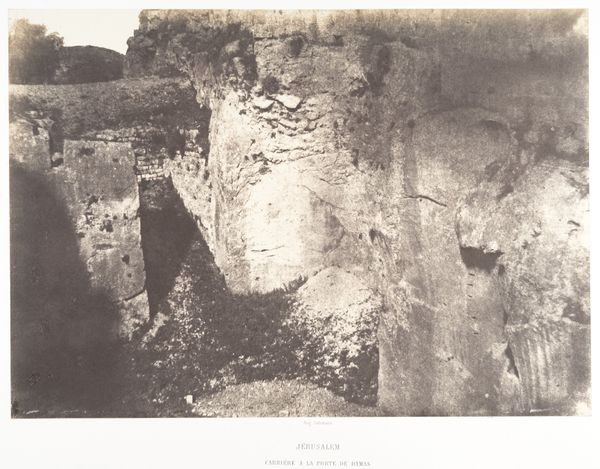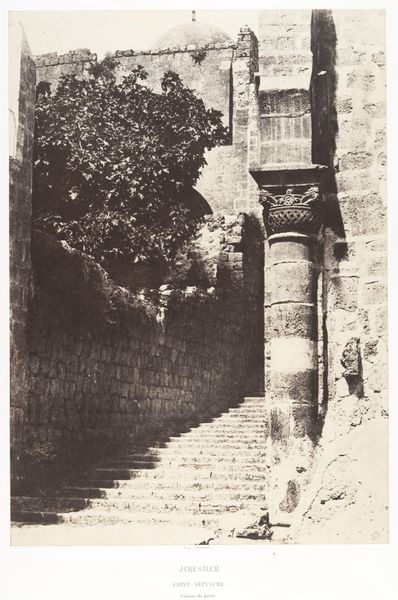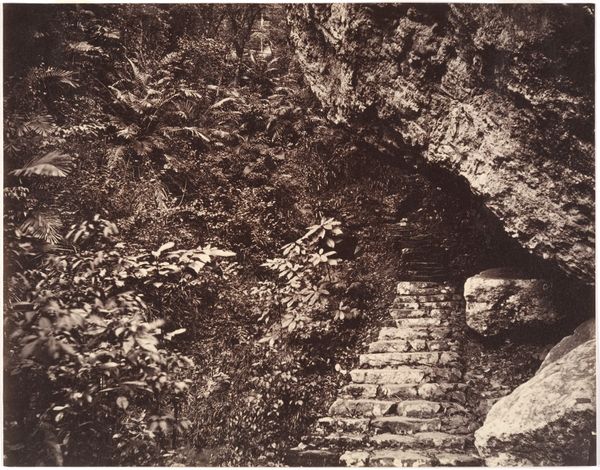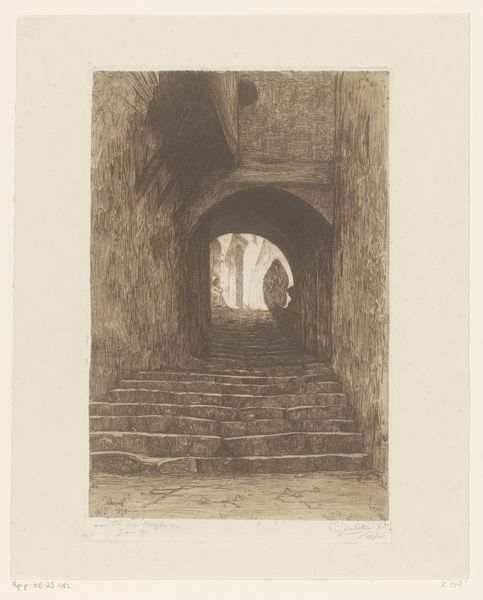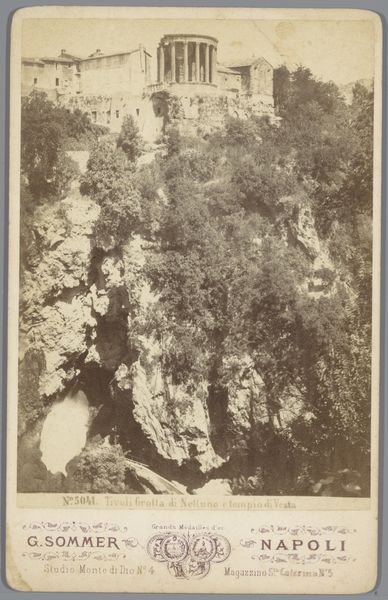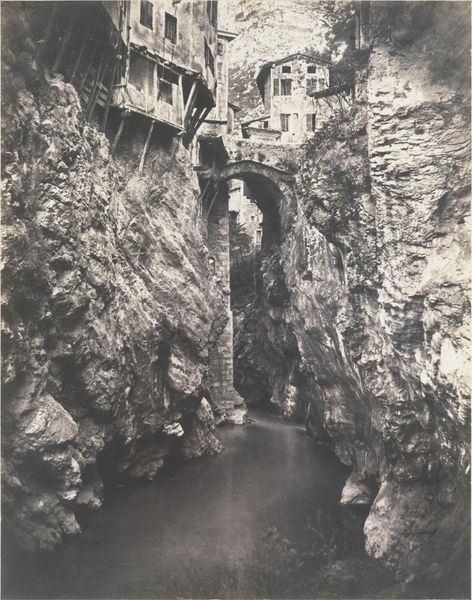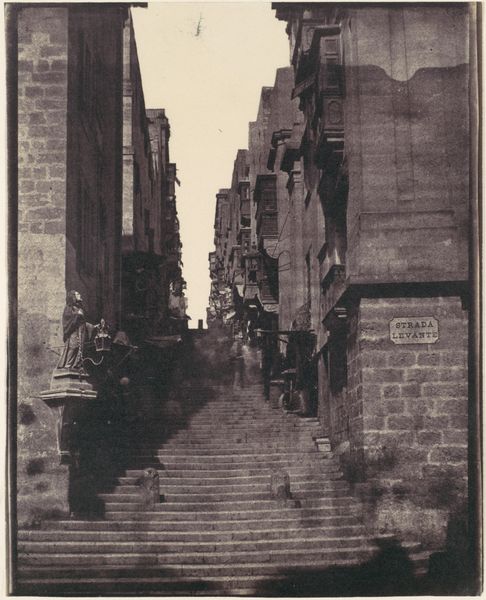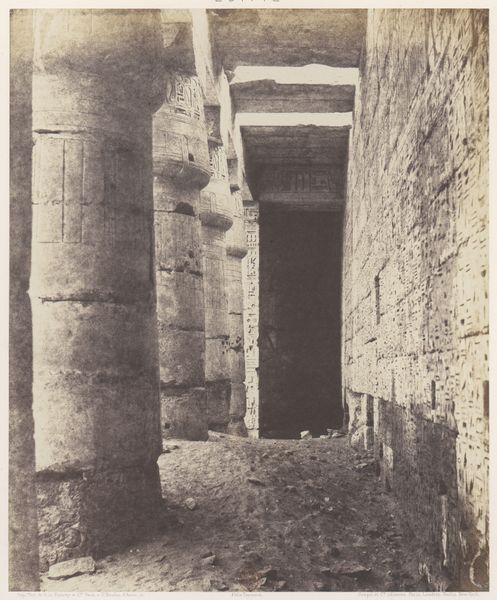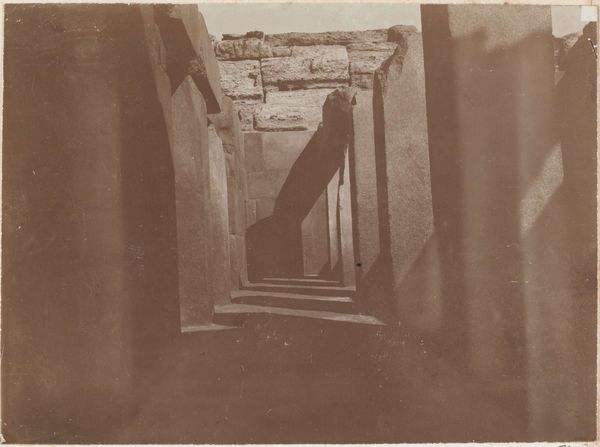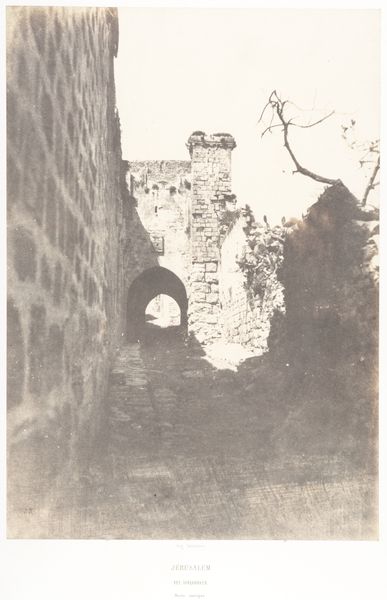
Jérusalem, Escalier antique taillé dans le roc, conduisant à l'ancienne Porte du Fumier 1854 - 1859
0:00
0:00
photography, albumen-print, architecture
#
landscape
#
photography
#
ancient-mediterranean
#
cityscape
#
albumen-print
#
architecture
Dimensions: Image: 33.3 x 23.5 cm (13 1/8 x 9 1/4 in.) Mount: 59.9 x 44.7 cm (23 9/16 x 17 5/8 in.)
Copyright: Public Domain
Auguste Salzmann made this photograph, titled "Jerusalem, antique staircase cut in the rock, leading to the old Dung Gate," using paper and salted albumen in the mid-19th century. The photograph freezes an archaeological site that speaks volumes about the social and cultural landscape of Jerusalem. Captured by Salzmann, this image embodies the intersection of photography, archaeology, and politics in mid-19th century Palestine. The Dung Gate, historically a point of entry and exit, takes on added meaning when we consider the religious and political tensions of the time. France, like other European powers, had a keen interest in the region, and photography served as a tool for documenting and, in some ways, claiming cultural and historical narratives. Salzmann's archaeological approach aimed to reveal truths about the past, but it also mirrored the contemporary politics of colonial influence. To fully understand this photograph, we need to consult historical records, travel accounts, and political analyses. The meaning of this image resides not only in its aesthetic qualities but also in its complex web of social, cultural, and institutional contexts.
Comments
No comments
Be the first to comment and join the conversation on the ultimate creative platform.
